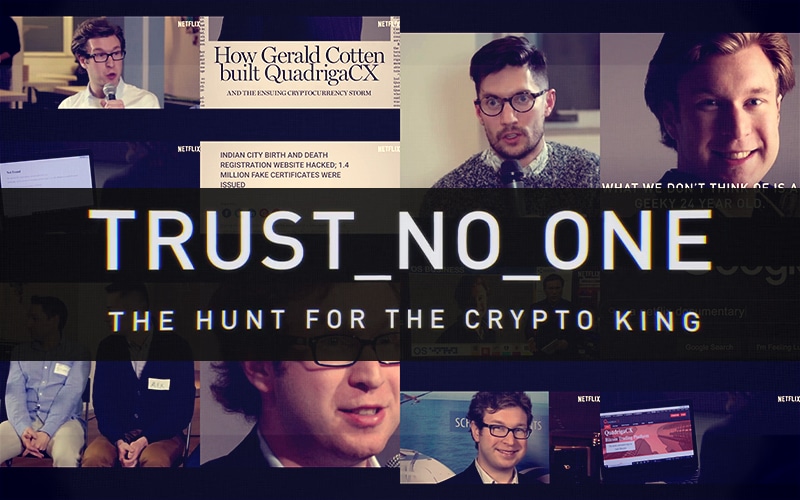Netflix has finally revealed the ‘Trust No One: The Hunt for the Crypto King’ Documentary. Trust No One depicts the story of Gerald Cotten, the founder of QuadrigaCX, who died in India suffering from Crohn’s disease, and his death prevented customers from getting their money, which totaled $250M dollars.
Netflix actually announced the documentary last September. It is directed by Luke Sewell and has the opening titles parodying search engines and YouTube video clips. When a new interviewee is introduced, their name appears as a notification on the screen.
There are a number of lovely tiny touches throughout the film, such as typos for city names and footage freezing for dramatic effect. This is a well-edited, fast-paced documentary with dynamic energy that mirrors the main cast’s chat room antics and the adrenaline of the probe.
The majority of the action takes place in these chatroom forums, where those who have been duped by the cryptocurrency exchange site speculate on the many possibilities surrounding the disappearance of the millionaire and his customers’ money.
Is it possible that he staged his own death? Is he a victim of assassination? Is his wife behind his death? Was there any wrongdoing? There are a plethora of ideas to explain these strange situations, and the filmmakers do an excellent job of delving into each one.
Some of the people in the crypto community who have been following the case for the past few years were happy with the documentary. Despite the fact that a large portion of the film focuses on Cotten’s mysterious death rather than the more interesting question of how he was able to get away with the scam for so long before it was finally discovered.
The latest reviews reveal that the documentary does not necessitate any prior expertise in cryptography to comprehend it.
Last month Netflix announced that it will tell the real story of “the biggest criminal financial crime case in history involving Bitfinex hackers, Ilya “Dutch” Lichtenstein and Heather Morgan who were arrested for conspiring to launder nearly 119,754 bitcoins, which is now worth around $4.5 billion.






